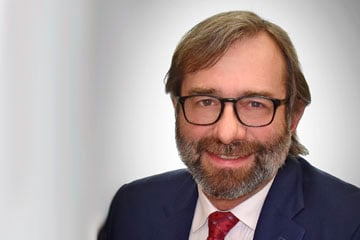
Despite a pledge from 22 benchers to repeal the Law Society of Ontario’s statement of principles, the requirement remains in place.

Despite a pledge from 22 benchers to repeal the Law Society of Ontario’s statement of principles, the requirement remains in place.
The slate of lawyers opposed to the statement of principles — a document that requires lawyers to promote diversity, inclusion and equity — tried to abolish the statement of principles this week, but it withdrew the proposal.
Murray Klippenstein, who withdrew the motion, told fellow benchers that the law society’s statement-of-principles requirement made him feel out of control of his thoughts. Klippenstein has been a long-time objector to the statement of principles, telling the Canadian Constitution Foundation last year that the LSO’s “attempt by force of law to compel myself and tens of thousands of lawyers to individually adopt a compulsory personal Statement of Principles, which advances a specific political viewpoint, is one of the most regressive developments I have seen in the profession of law and in Canada in my lifetime, because it attempts to force me to say and even to think things that they choose.”
However, an attempt to remove the compelled nature of the statement of principles — by making it encouraged but voluntary — did not win over Convocation on Thursday.
“It is quite an extensive reworking,” he said of an amendment to make the statement of principles optional, rather than repeal it all together. “In that proposal, you permeate what is now a new version of the statement of principles with a sort of political reporting process. That is a tremendously important change. There has been, and ought to be, a simple, clear question . . . [It] disrespects the normal process and the election.”
Through a spokesperson, the StopSOP slate shared a statement with Law Times about why its members voted to reject the prospect of a voluntary statement of principles.
The “compromise was unacceptable,” says bencher Gary Graham, a lawyer at Graham Stephenson LLP in Burlington, Ont.
“The LSO’s regulatory mandate does not include monitoring and shaping the political attitudes of its licensees. The SOP does exactly this, whether it is explicitly mandatory or formally ‘encouraged,’” Graham says in an email. “The rule of law requires that lawyers and paralegals be independent in thought and speech. The Groia proposal wants them to engage in groupthink and virtue signalling.”
Toronto lawyer Joseph Groia was behind the amendment that sought to make the statement of principles voluntary. In it, the amendment said, the law society should “provide a section in the lawyer annual report and the paralegal annual report in which any licensee may choose to disclose that they have voluntarily adopted” a statement of principles. Groia’s amendment also said that the law society should provide an “annual tally of the number of licensees who choose” to disclose that they made a statement of principles.
The “box” on the annual report created an issue for the opponents of the statement of principles, Graham says, even though an amendment to make the statement of principles voluntary without the “box” also failed to get enough votes on Thursday.
“Our position has always been that the SOP needed to be repealed, not modified and kept on life support. It was obvious yesterday that other members of Convocation were doing everything they could to avoid voting on our very simple and clean repeal,” says Graham.
For now, the statement of principles remains mandatory and in effect.
“Although I’m disturbed by some of the rhetoric, we won an important victory,” statement-of-principles supporter Atrisha Lewis said on Twitter. “The statement of principles lives another day. We won’t let equity go without a fight.”